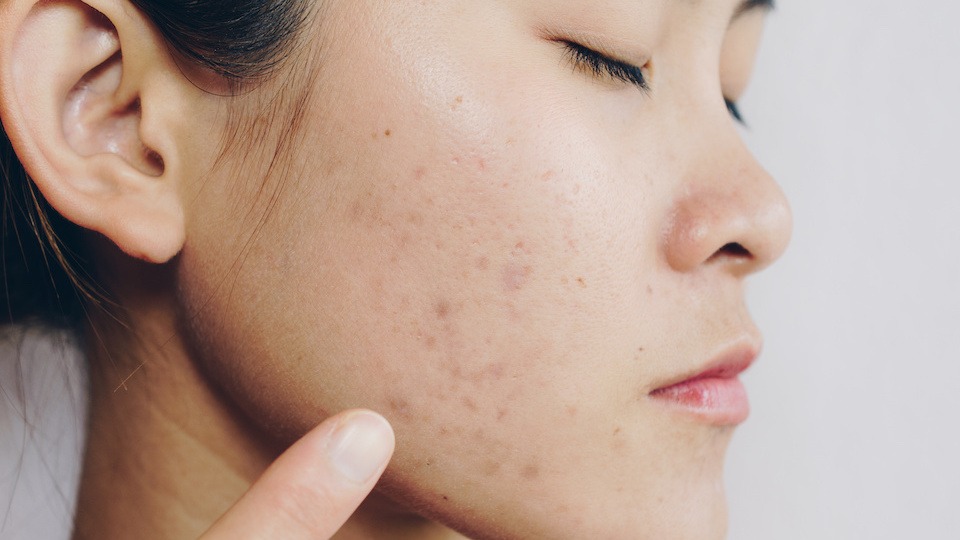When I saw Tania in my waiting room, I knew immediately why she was there. I could see it on her face…literally. She was 48 years old and had acne like a teenager. She wasn’t pleased. This was entirely new for her and had started in the last year as her menstrual cycle was becoming irregular. She had seen a dermatologist who gave her a few different prescriptions, but she wanted a natural approach…and she wanted to understand why this was happening to her in the first place. This article by my team at UpWellness is all about adult acne. It even has some DIY recipes for safe, effective, natural remedies.
Be well,
-JL
If you thought you left your acne behind after high school, you might be surprised to find yourself battling with something similar as an adult. Although we commonly see acne as a problem in teenagers, plenty of adults have issues with acne well into their adult years. Adult acne shares similarities with adolescent acne, but there are also some special characteristics of adult acne. We will unpack some of these below so we can get a better understanding of how to tackle adult acne issues.
What causes acne?
Post adolescent acne is acne that occurs after the age of 25. There are four similarities often found between adolescent acne and post-adolescent acne relative to cause, including:
- Excess oil production
- Clogged pores due to skin cells
- Clogged pores due to bacteria
- Clogged pores due to inflammation
Indirect factors affecting the above similarities include:
- Hormones, stress and menstrual cycle
- Personal care products that clog pores
- Diet which can impact inflammation
In addition, there are numerous medications that can also cause acne, including corticosteroids, anabolic steroids, and lithium.
Key drivers of adult acne
Hormones: Fluctuations in hormones, especially the male hormones like testosterone, are one of the main causes of adult acne, according to dermatologist Juli Tzu, M.D.
Stress: Generally, we have more stress as we age – especially if we are raising a family and holding down a job at the same time. When you are stressed, the adrenal gland produces the hormone cortisol to help quench the fiery flames of stress. At the same time that it releases cortisol, some testosterone sneaks out as well. For women, this can mean that the oil glands produce more oil – which leads to breakouts.
Pollution: The older we get, the more time your skin has been exposed to environmental toxins. Air pollution lands on the skin, clogs pores and causes breakouts. It can also cause the skin’s natural defense systems to be compromised and disrupt the natural pH balance.
Personal care: Do you overwash your face? If so, this may be causing your acne. If you cleanse more than twice a day, you are probably drying out your skin and wiping away beneficial bacteria. This causes your skin to overcompensate and produce more oil. Always use a gentle, all-natural face wash.
Sugar: Put down that caramel frap and exchange it for something with less sugar. Sugar raises insulin levels, which boost oil-triggering male hormones. For this reason and others, it is best to quit sugar altogether. Opt for raw stevia instead.
Natural ways to deal with adult acne
You may be tempted to head to your local drugstore for a remedy for your acne. Hold up for just a minute… many conventional products are expensive and cause undesirable side effects, including excessive dryness, redness, and irritation. Instead, try these two home remedies using all-natural ingredients.
Apple cider vinegar: Made by fermenting apple cider, apple cider vinegar contains organic acids that have been shown to kill P. acnes, the bacteria that causes acne. The lactic acid in apple cider vinegar has been shown to improve the appearance of acne scars. The best part of all is that apple cider vinegar may help to dry up the excess oil that causes acne without over-drying the skin or stripping it of its natural pH.
To use apple cider vinegar on skin:
- Mix 1 part apple cider vinegar with 3 parts water. ( never put apple cider vinegar directly on your skin)
- After cleansing, apply using a cotton ball.
- Let it sit on your face for about 5-20 seconds and rinse with water. Pat dry.
- Repeat this process 1-2 times per day, as needed.
Honey and cinnamon mask: Honey and cinnamon are excellent sources of antioxidants. Studies have found that putting antioxidants directly on the skin is more effective at reducing acne than commonly used benzoyl peroxide and retinoids. Honey and cinnamon are both bacteria fighters and can reduce inflammation, two things that trigger acne.
To use honey and apple cider vinegar on skin:
- Form a paste by mixing 2 tablespoons honey with 1 teaspoon of cinnamon.
- Apply the mixture to a clean face and let sit on your face for 10-15 minutes.
- Rinse off with cool water and pat your face dry.
Stay healthy from the inside out
One really important way to keep your skin as healthy as possible is to focus on eating a well balanced, whole foods diet with plenty of leafy greens, fresh fruit, healthy fats, and protein. Avoid fast and processed food whenever possible, and keep your sugar consumption to a minimum. Don’t forget to drink plenty of fresh water daily – at least 8 glasses – and get plenty of sleep and exercise as often as you can. Doing these things will help keep your hormones balanced and boost your immune system, which will support healthy and vibrant skin.
-The UpWellness Team









